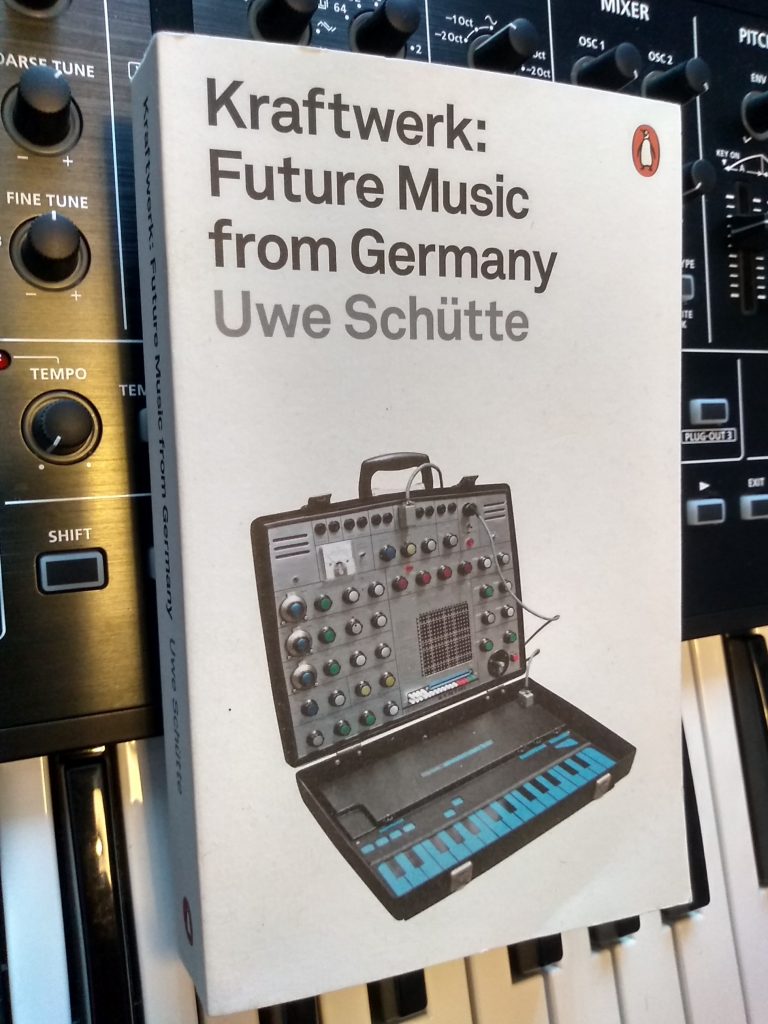
This book, published just a couple of months before the death of Kraftwerk co-founder Florian Scheider earlier this year, is a timely retrospective of the band that changed the shape of popular (and not so popular) music forever.
Readers of this blog will no doubt include many die-hard Kraftwerk fans, so this general introduction probably won’t feature much information that is not already known. However, there is still something of interest to be found in this book. Aside from the usual biographies and discographies, Uwe Shütte considers the aesthetic and philosophical aspects that shaped the Kraftwerk sound and ethos.
Coming of age in a Germany that had been physically destroyed by WWII, and artistically destroyed by the Nazis, the members of Kraftwerk, like many of their generation, set about creating a new cultural identity. They found it in the open highways and futuristic electronics of the information age.
The concept of ‘retro-futurism’ is used to explain the lasting appeal and timelessness of Kraftwerk. In the 1950s perhaps it was possible to think of the coming of a near utopian future where atomic energy and cybernetic planning could solve all of humanity’s problems. Today’s visions of the future are less picturesque, where the specters of environmental destruction, atomic war, and economic collapse are never far away. In this sense, we are haunted by nostalgia for dreams of a future that got canceled. Hence the appeal of the retro-futurism that is techno and electro music – we can again dream of the technological utopia.
An interesting chapter is one that explores the links and influences to Detroit techno. Kraftwerk’s concept of Gesamtkunstwerk (total art work – Kraftwerk was not just about the making individual pieces of music, but of forming total concepts of which albums, artwork, and the band themselves come together to form a coherent whole) was fully adopted by Drexciya as their music and imagery is used to construct a narrative and imaginary world that can be tracked over all of their releases. It is no accident that Dopplereffekt’s (formed by one half of Drexiya) first album shares it’s name with this concept.
There are, of course, a fair few Kraftwerk books already available, this one is an enjoyably readable and thought-provoking addition to the bunch.
